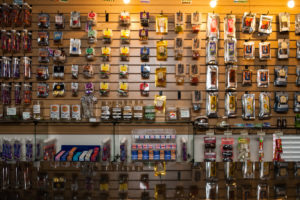State pot officials: Candy can stay

SEATTLE — State regulators have walked back a plan to crack down on certain cannabis-infused candies, instead issuing specific color and shape guidelines they say will prevent candies from being overly enticing to children.
The Washington State Liquor and Cannabis Board sent the legal-pot industry into a panic in early October, when the board announced it would review all edibles.
Although the state has long barred products that are too appealing to kids, the agency said it had received complaints about candies on store shelves that shouldn’t have been approved. In a presentation, the agency said “all production” of hard candies, tarts, fruit chews, colorful chocolates, jellies and “any gummy type products should cease.”
After an outcry, the agency announced it would pause that plan.
The board Wednesday finalized a policy that limits the colors and shapes that makers of cannabis edibles can use but stops short of banning any candies outright. Members of the Washington CannaBusiness Association are “very pleased with the results,” the trade group’s Executive Director Vicki Christophersen told reporters.
WSLCB representatives say the new guidelines are meant to keep off the market pot-infused candies that look too similar to brightly colored commercial candies marketed to kids. The agency will provide a list of approved colors and shapes, and labels will be limited to three accent colors from the approved color list. Cannabis candies that are too brightly colored will need to be “dulled,” according to the agency.
“We really found that candy and chocolates marketed toward adults had muted tones … maybe one accent color,” said Nicola Reid, WSLCB licensing policy and compliance manager. “Candy marketed toward children had a multitude of colors.”
While the policy doesn’t include an all-out ban on fruit chews or hard candies, some products such as cotton candy are “just geared toward children,” Reid said. “If you submitted white cotton candy, there is still a chance it’s especially appealing to children” and would not be approved.
The WSLCB plans to have the color list and other materials online by January, Reid said. Edibles makers will have to resubmit their products for approval by January 2020.
Jamie Hoffman, whose company Craft Elixirs sells a cannabis-infused fruit chew called Pioneer Squares, welcomed the new board policy over its initial proposal, which she said was “devastating.”
Hoffman’s Pioneer Squares are made with a fruit-flavored base and candied pieces of fruit. The candies now make up about 84 percent of her business, she said, so the board’s initial announcement made her worry her entire enterprise could be in danger.
Hoffman plans to change her packaging to comply. Because the chews use real fruit, such as lemons and oranges, she said she’s not sure whether they’ll be too bright. If so, she’ll have to tweak her recipe to tone down the color.
